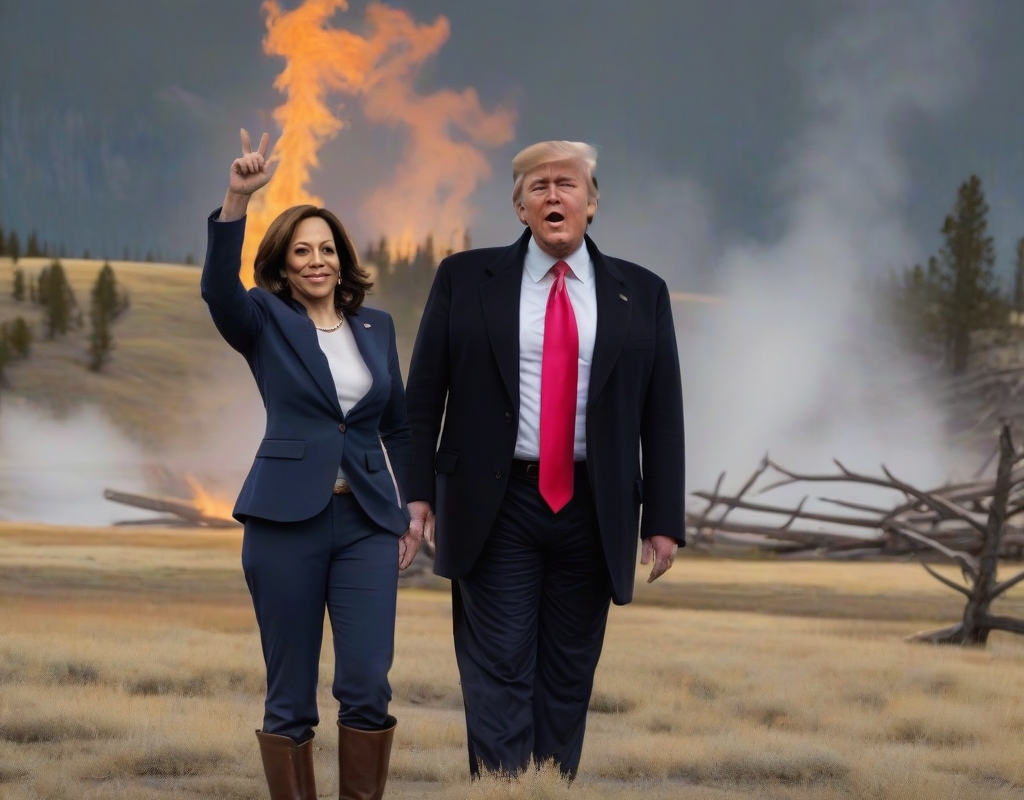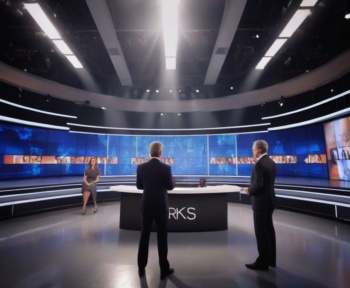The 2024 United States presidential race has become an intense focal point of both national and international observation, with Kamala Harris and Donald Trump positioned as the main contenders. As the election day inches closer, the media and public eagerly analyze every aspect of the campaign, drawing comparisons and speculating about future implications. A particularly intriguing perspective was presented on CNN, where host Michael Smerconish likened the electoral battle to a competition between two popular television shows: “Ted Lasso” and “Yellowstone.”
This analogy encapsulates the cultural and ideological divide influencing voter preferences. “Ted Lasso,” known for its warm, optimistic themes, mirrors the liberal values tied to inclusivity and progressive change, elements that Harris is known to advocate. Contrastingly, “Yellowstone” portrays a narrative steeped in staunch individualism and traditional values, resonating with the conservative principles often championed by Trump. This depiction effectively highlights the deep-seated cultural rift that may be a deciding factor in the election.
The race has proven itself to be exceptionally close, reflecting a nation deeply divided. Harris’s campaign, paralleling the uplifting and cohesive message of “Ted Lasso,” and Trump’s resilient, assertive approach, reminiscent of “Yellowstone,” both resonate strongly within their respective bases. This dynamic underscores the heightened polarization seen among American voters, who appear more entrenched than ever in their political affiliations.
The impact of media portrayal cannot be understated in this electoral scenario. Smerconish points out the crucial role media plays in shaping perceptions through often sensationalized and polarized reporting. This phenomena tends to amplify ideological divides, reinforcing preconceived notions rather than promoting well-rounded discourse. The media narratives surrounding Harris and Trump have certainly played into and magnified their ideological portrayals, shaping voter perceptions along the way.
Additionally, Smerconish introduced a hypothetical situation involving President Joe Biden, contemplating the electoral implications had he chosen to run for re-election. This scenario invites reflection on the strategic complexities and shifts that could have occurred, influencing campaign strategies and potentially altering voter demographics. Political experts suggest that Biden’s involvement might have dramatically shifted the focus of the campaigns, influencing both continuity and changes within party dynamics and voter engagement.
A broader historical perspective reveals that the schisms seen in the current election cycle are reflective of past political climates where sharp ideological divisions dominated. Past elections, like those of George W. Bush vs. Al Gore in 2000 and Trump vs. Hillary Clinton in 2016, similarly showcased a nation split by staunch political and cultural differences.
Delving into voter behavior trends, recent elections have witnessed significantly higher participation from younger and minority voters, groups that historically tend to favor progressive policies. This shift could be pivotal in the 2024 election, potentially swaying the outcome based on the mobilization and outreach efforts of the candidates.
Furthermore, the role of technology and social media in modern campaigns is profound. Both Harris and Trump have extensively utilized digital platforms to convey their messages, engage with voters, and manage narrative battles, reflecting broader changes in campaign strategy across the political spectrum. Social media’s tendency to reinforce divisive opinions through echo chambers and misinformation is a growing concern, raising questions about its impact on democracy and the informed voter.
In these final moments before the decision day, the United States is perceptibly at a crossroads, caught between disparate visions of its future. The “Ted Lasso” versus “Yellowstone” metaphor underscores the broader societal and cultural values at stake, with each candidate encapsulating contrasting ideologies and lifestyle visions.
The outcome hinges on which candidate effectively rallies their supporters and persuades the undecided voters. As the world watches keenly, the 2024 election represents not just a significant political event but a decisive moment reflecting on broader American societal values and directions.
In essence, the unfolding of the 2024 presidential election is an encompassing narrative about identity, collective aspirations, and the societal path ahead. With unprecedented stakes, this electoral battle extends beyond a mere governance choice—it is a profound commentary on the enduring American ethos and the role of democracy in shaping its future.




